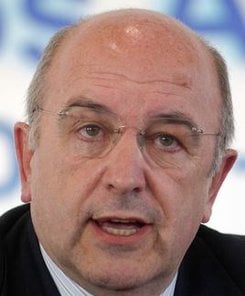The European Commission fines smart card chip makers €138 million ($181 million) for coordinating their market behavior, thus violating European Union (EU) anti-competition rules that prohibit cartels. In other words, they were punished for price fixing smart card chips.
According to the European Commission, the trading bloc’s central antitrust authority, Samsung, Philips and Infineon colluded through bilateral contacts that occurred from September 2003 to September 2005.
For cooperating with the Commission, i.e. revealing the cartel’s existence, Renesas (a Mitshubishi-Hitachi joint venture at the time) received full immunity under the EU’s 2006 Leniency Notice.
Two companies will appeal
Dutch firm Philips and German company Infineon say they will appeal. S. Korea’s Samsung has not yet made any statement.
Philips says the claims of anti-competitive behavior by its former smart card chips business are unfounded.
In a public communique today, Infineon wrote:
“Infineon rejects the allegations as unfounded. Further, Infineon believes that its procedural rights were violated by the European Commission. Therefore, Infineon will review the decision very closely and is ready to appeal at the General Court of the European Union in Luxembourg.”
If you collude, expect sanctions
Joaquín Almunia, Commission Vice President in charge of competition policy, said:

“In this digital era smart card chips are used by almost everybody, whether in their mobile phones, bank cards or passports. It is crucial that the companies producing them focus their efforts on how to outperform their competitors by innovating and providing the best products at the most attractive prices.”
“If instead companies choose to collude, at the expense of both customers and end consumers, they should expect sanctions.”
Smart card chips are used in passports, ID cards, bank cards, telephone SIM cards and several other applications.
Collusion was extensive
The European regulator says the companies colluded through a network of bilateral contacts to determine how to respond to customers’ requests for discounts. They discussed and swapped:
- sensitive commercial data on customers,
- contract negotiations,
- pricing,
- capacity utilization,
- production capacity, and
- their future market conduct.
The European Commission wrote:
“Collusion of this type breaches Article 101 of the Treaty on the Functioning of the European Union (TFEU) and Article 53 of the Agreement on the European Economic Area (EEA), which prohibit cartels and restrictive business practices.”
Commission had abandoned earlier talks
The Commission said it had previously abandoned the idea of settling the case with some of the companies in 2012 when it felt there was a clear lack of progress in the discussions.
Samsung’s fine was reduced by 30% because it cooperated with the probe.
Although Philips sold off its smart card chips business after the infringement, the Commission says it is still liable for what occurred during the period of misconduct.
Below is a breakdown of the fines imposed by the European Commission:
- Infineon (Germany). Reduction under Leniency Notice: 0%. Total fine: €82,784,000.
- Philips (Netherlands). Reduction under Leniency Notice: 0%. Total fine: €20,148,000.
- Samsung (S. Korea). Reduction under Leniency Notice: 30%. Total fine: €35,116,000.
- Renesas (Hitachi and Mitsubishi) (Japan). Reduction under Leniency Notice: 100%. Total Fine: €0.
